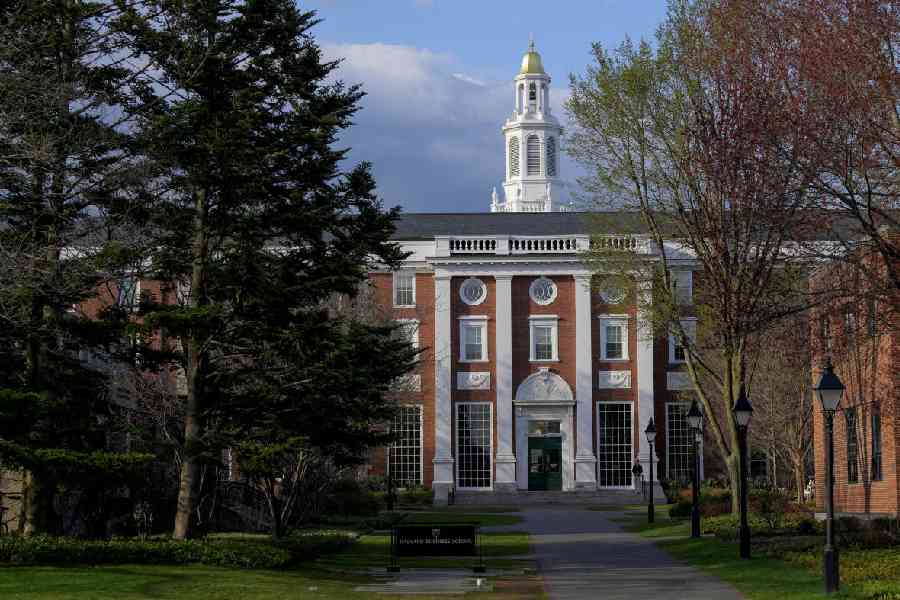Harvard University has signalled a willingness to meet the Trump administration’s demand to spend as much as $500 million to end its dispute with the White House as talks between the two sides intensify, four people familiar with the negotiations said.
According to one of the people, Harvard is reluctant to directly pay the federal government, but negotiators are still discussing the exact financial terms.
The sum sought by the government, which recently accused Harvard of civil rights violations, is more than twice as much as the $200 million fine that Columbia University said it would pay when it settled antisemitism claims with the White House last week. Neither Harvard nor the government has publicly detailed potential terms for a settlement and what allegations the money would be intended to resolve.
President Donald Trump has privately demanded that Harvard pay far more than Columbia. The people who described the talks and the dynamics surrounding them spoke on the condition of anonymity to discuss confidential negotiations.
Although the two sides have made progress towards a deal, Harvard is also sceptical of Columbia’s agreement to allow an outside monitor to oversee its sweeping arrangement with the government. Harvard officials have signalled that such a requirement for their own settlement could be a redline as a potential infringement on the university’s academic freedom.
University officials, though, concluded that even if they prevailed in their court fight against the government, a deal could help Harvard to avoid more troubles over the course of Trump’s term.
The timing was unclear for when the administration and Harvard might reach an accord, but the university is expected to demand that any deal be tied to the federal lawsuit it brought against the government in April.
Trump said in June that his administration might strike an agreement with Harvard “over the next week or so”. Although that time frame has lapsed, the President has privately told aides that he will not green-light a deal unless the nation’s oldest and wealthiest university agrees to spend many millions of dollars.
The President’s focus on financial terms reflects a shift in strategy for the administration, which spent the first months of its assault on higher education highlighting the prospects of reorienting the industry’s perceived ideological tilt. Although the White House has tied federal research funds to its quest for negotiations with top schools since the winter, Trump’s focus on the financial conditions of any settlements emerged more recently.
A White House spokesman, Harrison W. Fields, said on Monday that the administration’s “proposition is simple and common sense: Don’t allow antisemitism and DEI to run your campus, don’t break the law, and protect the civil liberties of all students”.
Fields added that the White House was “confident that Harvard will eventually come around and support the president’s vision, and through good-faith conversations and negotiations, a good deal is more than possible”.
The Trump administration publicly depicted last week’s settlement with Columbia as a template for bargaining with Harvard. And, indeed, higher education executives have spent days dissecting the fine print of Columbia’s deal that goes far beyond addressing antisemitism. Many have focused on a provision that said no part of the settlement “shall be construed as giving the US authority to dictate faculty hiring, university hiring, admissions decisions or the content of academic speech”.
New York Times News Service










